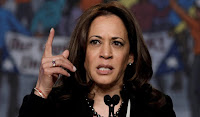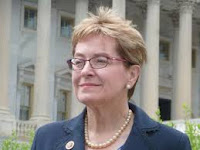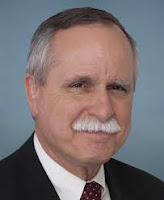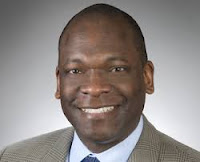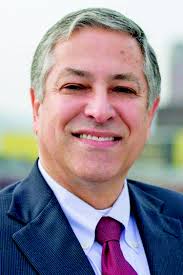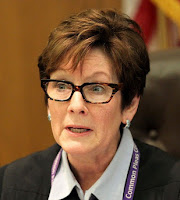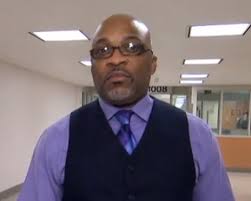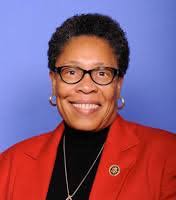 Pictured is Ohio Congresswoman Marcia Fudge (D-11), whose largely Black 11th congressional district includes Cleveland
Pictured is Ohio Congresswoman Marcia Fudge (D-11), whose largely Black 11th congressional district includes Cleveland
Clevelandurbannews.com and Kathywraycolemanonlinenewsblog.com, Ohio's most read Black digital newspaper and Black blog with some 5 million views on Google Plus alone.Tel: (216) 659-0473 and Email: editor@clevelandurbannews.com.
CLEVELANDURBANNEWS.COM-WASHINGTON, D.C. - The U.S. House of Representatives on Friday passed the Voting Rights Advancement Act, proposed federal legislation that would restore key provisions of the Voting Rights Act of 1965 invalidated by the Supreme Court’s 2013 Shelby County v. Holder decision.
The historic measure, passed by a House of Representatives controlled by Democrats, now heads to the Republican dominated U.S. Senate for review, and possible passage.
It passed in the House 228-187, and along partisan lines.
Only one Republican, Rep. Brian Fitzpatrick of Pennsylvania, joined Democrats in supporting the bill, which will have an uphill battle in the Senate.
The Voting Rights Advancement Act, if it passes the Senate and subsequently becomes law, updates the formula used to determine which states and localities must pre-clear their voting changes with the Department of Justice before they can take effect.
It also requires jurisdictions to publicly disclose all voting changes and establishes a process for reviewing voting changes in jurisdictions nationwide of known discriminatory practises
Following passage of the bill, Rep. Marcia L. Fudge (OH-11), chair of the House Administration Subcommittee on Elections who has has held hearings this year across the country on voting rights, including in Ohio, Arizona, North Dakota, North Carolina, Florida, and Georgia, said the legislation is crucial to the fight to protect the constitutional right to vote nationwide.
“The right to vote as guaranteed by the Constitution is essential to our American democracy," said the congresswoman, a Warrensville Heights Democrat whose largely Black 11th congressional district includes Cleveland. "Yet our nation has a long, dark history of denying or restricting access to the ballot box."
The Supreme Court’s 2013 Shelby County v. Holder decision, the impetus for the voting rights bill that passed in the House on Friday, struck down key provisions of the Voting Rights Act of 1965, eliminating requirements for certain states to “pre-clear” their voting law changes with the Department of Justice.
In the court’s decision, Chief Justice John Roberts acknowledged that voting discrimination still exists and no one doubts that,” the congresswoman said. "
And she said that the formula used to reach such a decision was outdated and unreliable and that the court, in Shelby County vs Holder, also stresses that Congress is responsible for drafting another formula based on current conditions.
“Since the Shelby decision, states have enacted laws that have made voting harder, if not impossible, for many Americans, especially Black, Native, Latino and language-minority citizens," said Fudge. "Today’s passage of the VRAA is the first step towards restoring the Voting Rights Act to its full strength, and ensuring every eligible citizen has the unfettered, unabridged right to vote."
A former chair of the Congressional Black Caucus, Fudge was appointed subcommittee chair by Democratic House Speaker Nancy Pelosi, who took the helm as leader of the lower chamber of Congress after the Dems regained control of the House via the 2018 midterm elections.
Pelosi resurrected the previously defunct subcommittee and name Fudge as the subcommittee leader.Click Here To Go To The Subcommittee On Elections of the Committee on House Administration Website
A champion of voting rights, Fudge immediately began holding subcommittee hearings on voting and has said that a major purpose of the hearings being held across the nation in select states, including targeted states like Ohio were voter suppression is at an all time high, is to tackle voter discrimination and voter fraud nationwide, and to address the Supreme Court’s concerns about the data supporting Section 4 of the Voting Rights Act.
Working towards the full implementation of Section 5 of the Voting Rights Act is also a major goal, the congresswoman has said.
Also at issue is the lack of ballot access for language minority populations.
In addition to chairperson Fudge, other congressional members of the subcommittee on voting are Democratic Reps G.K. Butterfield of North Carolina, also a former chair of the Congressional Black Caucus like Fudge, and Pete Aguilar of California, and Rep Rodney Davis, a Republican congressman from Illinois.
Clevelandurbannews.com and Kathywraycolemanonlinenewsblog.com, Ohio's most read Black digital newspaper and Black blog with some 5 million views on Google Plus alone.Tel: (216) 659-0473 and Email: editor@clevelandurbannews.com. Kathy Wray Coleman, editor-in-chief, and who trained for 17 years at the Call and Post Newspaper in Cleveland, Ohio. We interviewed former president Barack Obama one-on-one when he was campaigning for president. As to the Obama interview, CLICK HERE TO READ THE ENTIRE ARTICLE AT CLEVELAND URBAN NEWS.COM, OHIO'S LEADER IN BLACK DIGITAL NEWS.




